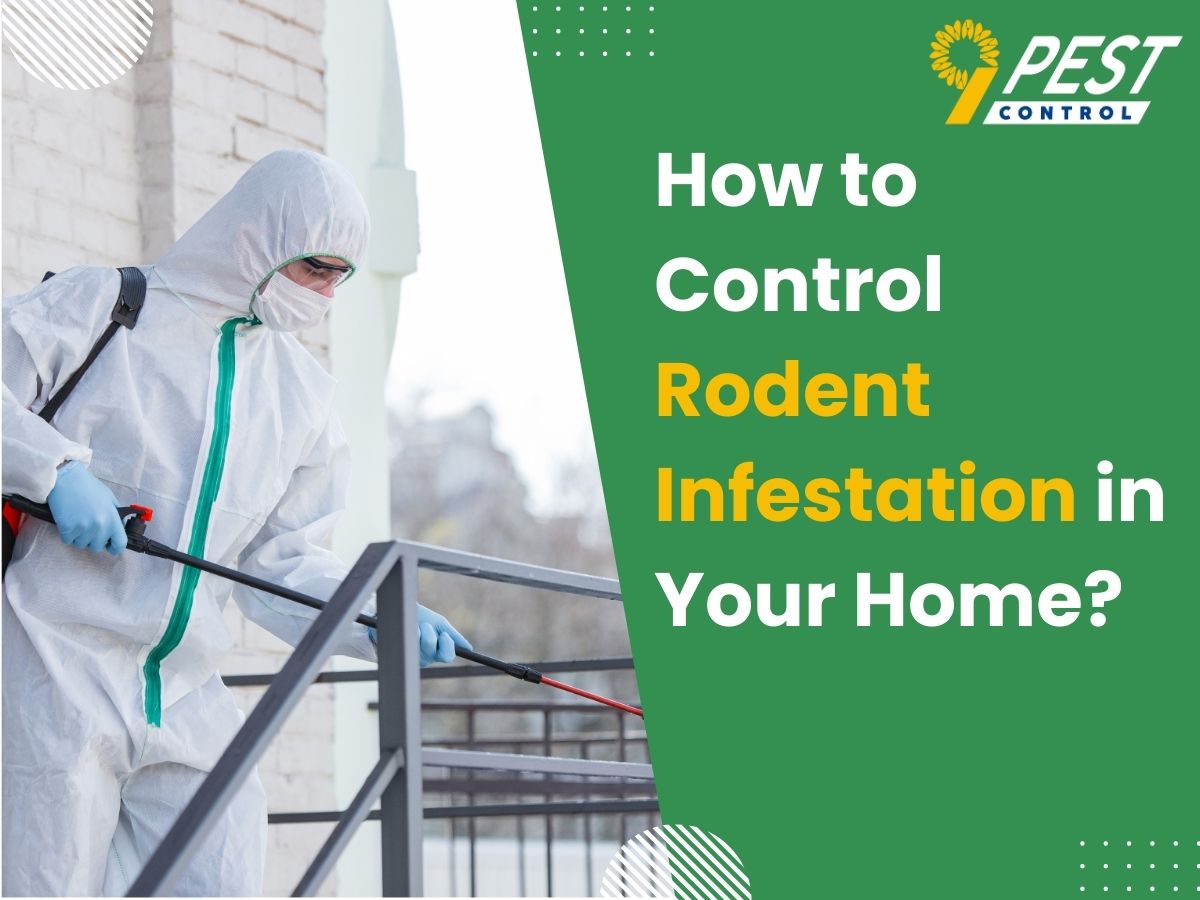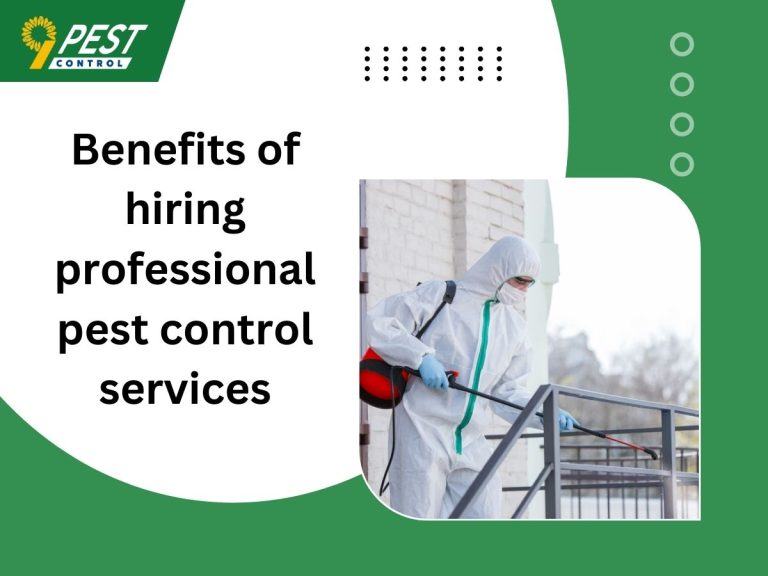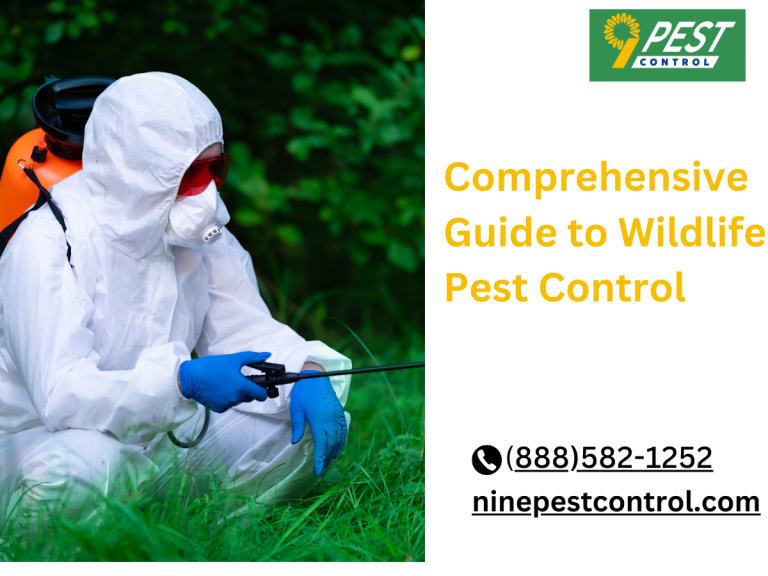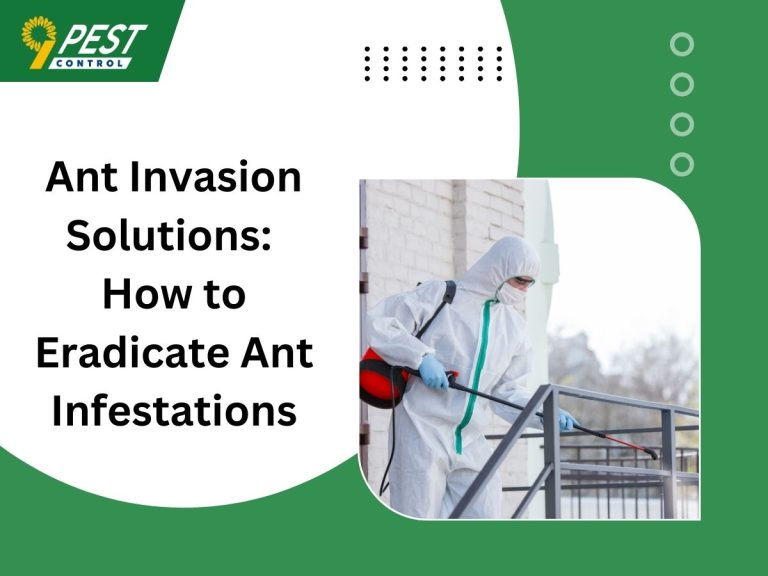How to Control Rodent Infestation in Your Home?
Rodent infestations are a common problem in many homes. Mice and rats not only cause damage but also spread diseases. According to the CDC, rodents can transmit over 35 diseases worldwide.
These tiny invaders, like mice and rats, pose serious risks. They damage property, chew through wires, and spread diseases. Did you know that rodents cause around 25% of all house fires in the U.S. by gnawing on electrical wires? That’s why it’s crucial to address a rodent infestation as soon as possible.
Today, we will give practical steps to help you control a rodent infestation and prevent future problems. Whether you’re dealing with a current issue or want to be proactive this blog will give you everything you need.
How Can You Tell if You Have a Rodent Problem?
Rodents are sneaky. They can hide easily and come out only when it’s quiet. However, there are several signs you should watch for. Knowing these can help you catch a rodent problem early before it gets out of hand.
- Droppings: Rodent droppings are small and dark. They are often found near food sources, such as in cupboards, under the sink, or along baseboards.
- Gnaw Marks: Mice and rats chew constantly to keep their teeth sharp. Look for bite marks on wood, wires, or even food packages.
- Scratching Noises: Rodents love to hide in walls and ceilings. You might hear scratching or scurrying at night.
- Footprints and Smudge Marks: Mice leave behind greasy marks along walls and dusty areas, especially in the attic or basement.
- Strange Pet Behavior: Pets can detect rodents before humans can. If your cat or dog is focused on specific spots in your home, they may have noticed the pests.
What Are the Most Effective Ways to Control Rodent Infestation?
Controlling a rodent infestation effectively requires using the right methods and staying consistent in your approach. Here are some of the most effective strategies for managing rodent issues in your home:
Seal Entry Points: The First Step to Prevention
Rodents can enter your home through surprisingly small gaps—mice can squeeze through holes as tiny as 1/4 inch. Inspect your home carefully for any cracks, gaps, or holes around doors, windows, and your foundation.
Sealing these openings with materials like steel wool, caulk, or wire mesh will help block potential entry points. Roof openings, such as damaged shingles and vents, should also be secured, as rodents can climb and access your home from above.
Eliminate Food Sources: Removing What Attracts Rodents
Rodents are drawn to homes that offer easy access to food and water. To prevent them from settling in, it’s crucial to eliminate these sources. Store all food in airtight containers, wipe down counters, sweep floors, and promptly dispose of garbage.
The Environmental Protection Agency (EPA) states that proper sanitation can eliminate up to 50% of rodent-related issues. Don’t leave pet food out overnight, and fix any leaky pipes or water sources, as rodents also seek out water. Reducing access to food can significantly reduce the likelihood of rodents staying in your home.
Use Traps: Target Rodent Activity with Precision
Traps are one of the most common and effective ways to catch rodents. Snap traps are quick and efficient, killing rodents instantly. You can also use live traps for a more humane approach. Place traps in high-traffic areas like along walls, in cupboards, or near food sources.
A Chicago hotel used 15 snap traps and eliminated a mouse infestation within two weeks, catching eight mice in the first 5 days. Bait the traps with foods rodents find irresistible, such as peanut butter or chocolate. Make sure to check and reset traps regularly to control the infestation.
Natural Repellents: Eco-Friendly Alternatives
If you prefer not to use chemicals or poisons, natural repellents can help deter rodents. Peppermint oil, for example, is a popular choice because rodents dislike its strong scent. You can soak cotton balls in peppermint oil and place them in areas where rodents are likely to enter, such as kitchens, attics, and basements.
Research conducted by the University of California’s Integrated Pest Management program found that peppermint oil when placed in rodent entry points, can reduce rodent activity by up to 30%. Other natural deterrents include ammonia and ultrasonic devices, which create unpleasant environments for rodents.
Bait Stations: A Stronger Option for Larger Infestations
Bait stations can be an effective solution for more severe rodent infestations. Bait stations are tamper-resistant boxes filled with poison bait that attract and kill rodents. They work well for larger rodent populations because they allow multiple rodents to consume the poison. However, it’s important to use them cautiously, particularly in homes with pets or children. Bait stations should be placed in areas where rodents are most active but out of reach of non-target animals.
A Detroit warehouse reduced rodent activity by 75% in four weeks using bait stations, with a 90% decrease after two months, proving their effectiveness in large infestations.
Call Professional Pest Control: Expert Help for Serious Problems
Calling a professional pest control service may be your best option if the infestation is too large or persistent. Pest control experts can assess your home, identify hidden problem areas, and use advanced techniques like rodent exclusion and fumigation to eliminate the problem.
At Nine Pest Control, we specialize in providing comprehensive solutions tailored to your needs. Our highly trained professionals use state-of-the-art methods and eco-friendly products to ensure your home is pest-free while prioritizing the safety of your family and pets. Whether you’re dealing with rodents, termites, or other pests, we protect your home with reliable, long-lasting results.
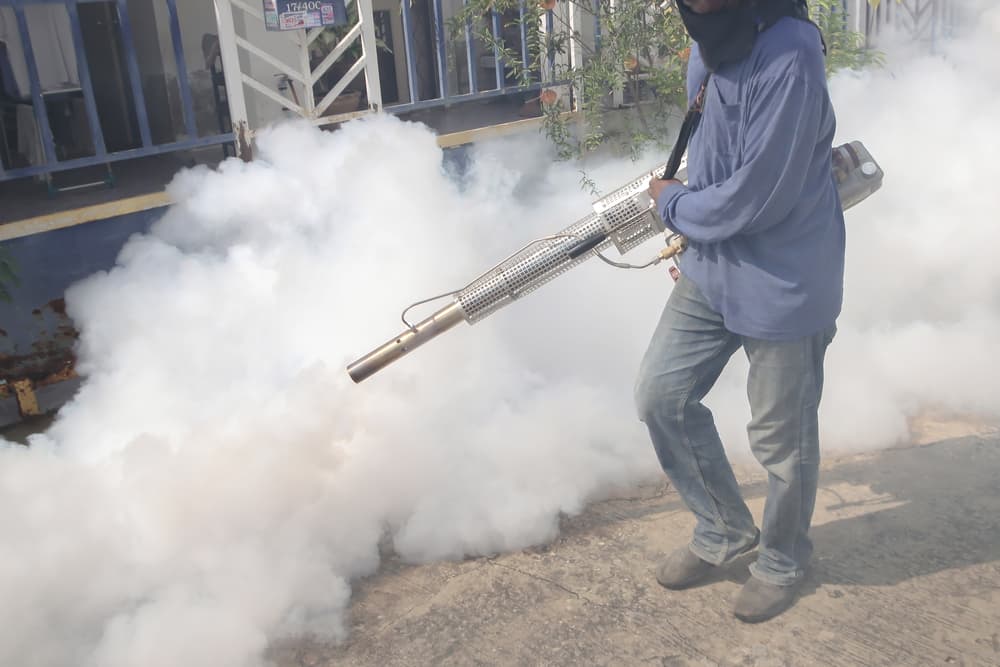
How Can You Prevent Future Rodent Infestations?
After dealing with a rodent infestation, preventing future problems is crucial. Rodents are among the most common household pests, and their presence poses significant health hazards and property damage. Here are some practical pest control tips to keep these destructive pests out of your home for good:
- Keep Your Home Clean: Clean regularly, especially in the kitchen, to remove food particles that can attract rodents and other common types of pests. Vacuum, sweep, and mop floors frequently to eliminate potential food sources.
- Store Food Properly: Always store food in airtight containers to prevent attracting these challenging pests. Avoid leaving food exposed in the kitchen or pantry, as this can invite dangerous pests like rodents.
- Trim Vegetation: Overgrown shrubs and trees near your home offer easy access for rodents. Trim back vegetation and store firewood away from your house to protect wooden structures from potential rodent nesting.
- Inspect Regularly: Regularly inspect your home, especially in the attic, basement, and around the foundation, for signs of rodent activity. Early detection of any categories of pests can prevent a larger infestation and limit the damage.
In Which Season Do Rodent Infestations Occur?
Here are the times when rodent infestations are most likely to occur:
- Fall and Winter: Rodents, such as mice and rats, seek warmth and shelter indoors as temperatures drop, making these months prime time for infestations.
- Harvest Season: During late summer and early fall, rodents are drawn to homes near fields or gardens after the harvest, looking for food sources.
- Cold Weather Drives Indoors: As outdoor food sources become scarce in winter, rodents invade homes in search of food and water.
- Rainy Seasons: In regions with heavy rains, rodents seek drier environments, often invading homes and buildings for shelter.
- Milder Weather in Spring: While less common, rodent activity can spike in spring as breeding begins and they look for nesting sites.
Wrapping Up!
Controlling pests like rodents requires consistent effort and a solid plan. While DIY pest control methods and prevention tips can help, they may not always be enough, particularly for severe infestations. If you’re dealing with common or more dangerous pests, like rodents, or want to ensure long-term control of pests, Nine Pest Control is here to help. We offer affordable services to address all categories of pests, including the most destructive ones like rodents.
Don’t wait for the problem to escalate—contact us today for a free inspection and find out how we can protect your home from future infestations using effective chemical pest control methods and prevention strategies!

